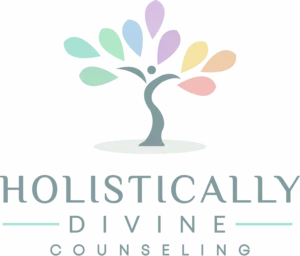Navigating Grief and Loss: A Guide to Healthy and Constructive Coping
Author: Sherri S. Wick, MS, LCPC, NCC
Navigating Grief and Loss: A Guide to Healthy and Constructive Coping
Author: Sherri S. Wick, MS, LCPC, NCC
Categories
- Grief & Loss
Grief and loss are universal human experiences that touch every individual at some point. The pain and sadness accompanying these events can be overwhelming, whether it’s the death of a loved one, the end of a significant relationship, a job loss, or any other form of loss. However, dealing with grief healthily and constructively can help us find healing and eventually move forward. Let’s explore some essential strategies and coping mechanisms to navigate the journey of grief positively and constructively.
- Acknowledge Your Emotions: The first step in dealing with grief is acknowledging and accepting your emotions. Feeling sadness, anger, guilt, confusion, or even relief is a healthy part of grieving. Allow yourself to experience these feelings without judgment or self-criticism. Remember that grieving is natural, and suppressing emotions can lead to more significant issues.
- Seek Support: Never hesitate to reach out for support during grief. Surround yourself with friends, family, or a support group who can empathize and listen without judgment. Talking about your feelings and sharing your memories can be therapeutic and help you feel less alone.
- Practice Self-Care: During periods of grief, it’s essential to prioritize self-care. Take care of your physical and emotional well-being by getting enough sleep, maintaining a balanced diet, and exercising regularly. Be gentle with yourself and allow time for healing without rushing the process.
- Express Yourself Creatively: Artistic expression can be a powerful outlet for grief. Whether it’s through writing, painting, music, or any other creative activity, expressing your emotions can provide a sense of release and help you make sense of your feelings.
- Engage in Mindfulness and Meditation: Practicing mindfulness and meditation can help you stay present and grounded during times of grief. It allows you to observe your emotions without becoming overwhelmed by them, fostering a sense of acceptance and peace.
- Seek Professional Help if Needed: If you find that grief significantly impacts your daily life, relationships, or mental health, consider seeking the help of a professional counselor or therapist. They can provide valuable guidance and support tailored to your unique situation.
- Create New Rituals and Memories: Instead of trying to forget the past, create new rituals and memories that honor the person or thing you’ve lost. It could be participating in a charity event in their name or dedicating time to a hobby they loved. These acts can help you find a sense of purpose and connection.
- Give Yourself Time: Healing from grief is not a linear process and doesn’t have a specific timeline. Allow yourself the time and space to process your emotions and find closure. Be patient with yourself and recognize that everyone’s grieving journey is different.
Dealing with grief and loss in a healthy and constructive way requires compassion, patience, and understanding. You can gradually find healing and embrace life again by acknowledging your emotions, seeking support, practicing self-care, and engaging in creative outlets. Grief is a natural part of the human experience, and it is entirely possible to emerge stronger and more resilient on the other side.


